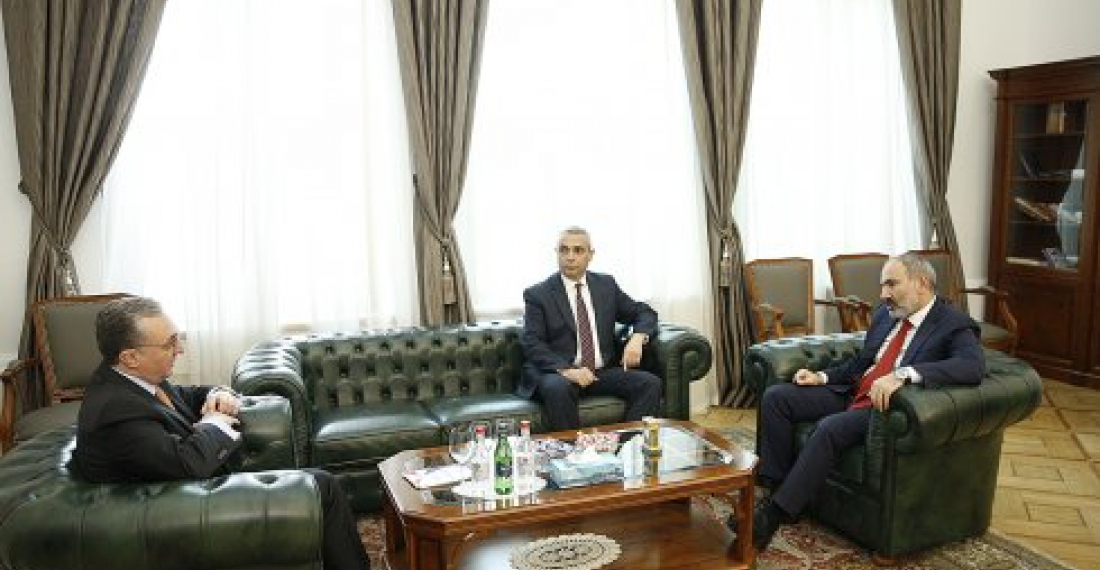This is a commentary prepared by the political editor of commonspace.eu
The foreign ministers of the 57 member states of the OSCE - the Organisation for Security and Co-operation in Europe, will meet in Bratislava on 5-6 December for their annual meeting, which will also mark the end of the one-year Slovak Chairmanship of the Organisation. These meetings are usually boring set-piece affairs, during which each minister reads from a prepared speech for 3 or 4 minutes. But the meetings usually are also a good thermometer for the current state of European peace and security, and particularly of Russian relations with the west and the rest.
A meeting between the foreign ministers of Armenia and Azerbaijan, mediated by the OSCE's own Minsk Group co-chair countries (France, Russia and the United States) has also become part of the ritual - an opportunity to take stock of the events of the previous year.
Expectations from both meetings are usually modest. This is diplomats doing what diplomats do - showcasing their countries' positions and keeping channels of communication open.
But some last minute flurry of activity has raised hopes that Bratislava may be a gamechanger in the protracted efforts to find a solution to the Nagorno-Karabakh conflict between Armenians and Azerbaijanis. Russian Foreign Minister Sergei Lavrov visited both countries over the last month, and clearly Karabakh was high on the agenda. Instead of dodging questions on Karabakh as has often been the case, in both Baku and Yerevan Lavrov tried to address the issue head on, even allowing himself an optimistic comment or two. A modest exchange visit involving three Armenian and three Azerbaijani journalists also took place in November in a tightly managed exercise supported by the two governments.
On the eve of his departure for Bratislava, Azerbaijani Foreign Minister Elmar Mammadyarvov raised the stakes by saying that he expected that in his meeting with his Armenian counterpart there will be the start of the long expected "substantive negotiations" which the Azerbaijani side has long called for. In simple terms this means that instead of discussing how to manage the conflict they will now start to discuss how to solve it. This has not been confirmed by the Armenian side, nor by anyone else, but unusually, Armenian prime minister Nikol Pashinyan, was on the same day shown meeting with his foreign minister, Zohrab Mnatsakanyan and with the foreign minister of the self-declared Nagorno-Karabakh Republic, Masis Mayelian, to co-ordinate positions ahead of the Bratislava meeting. There is talk that a formal summit between Pashinyan and the Azerbaijani leader Ilham Aliyev may be on the agenda for the first part of 2020.
There is a whiff of optimism in the air, but cynics and realists alike advise caution. In the efforts to resolve the Karabakh conflict over the last quarter century there have been several moments of euphoria, usually followed by disappointment and worse. But expectations from Bratislava, even by the most optimistic calculation, are modest. We expect the usual terse statement by the co-chair countries on Friday or Saturday telling us that the meeting has taken place. But a word here, or a sentence there, will allow Armenians and Azerbaijanis who seek a solution of this conflict a chance to understand if that prospect is any nearer.
source: This commentary was prepared by the political editor of commonspace.eu
photo: Armenian Prime mInister Nikol Pashinyan met with his foreign minister Zohrab Mnatsakanyan and with the foreign minister of the Nagorno-Karabakh Republic on Tuesday to co-ordinate positions ahead of the meeting in Bratislava on 5-6 December 2019. (picture courtesy of the press service of the government of Armenia)
The views expressed in opinion pieces and commentaries do not necessarily reflect the position of commonspace.eu or its partners







